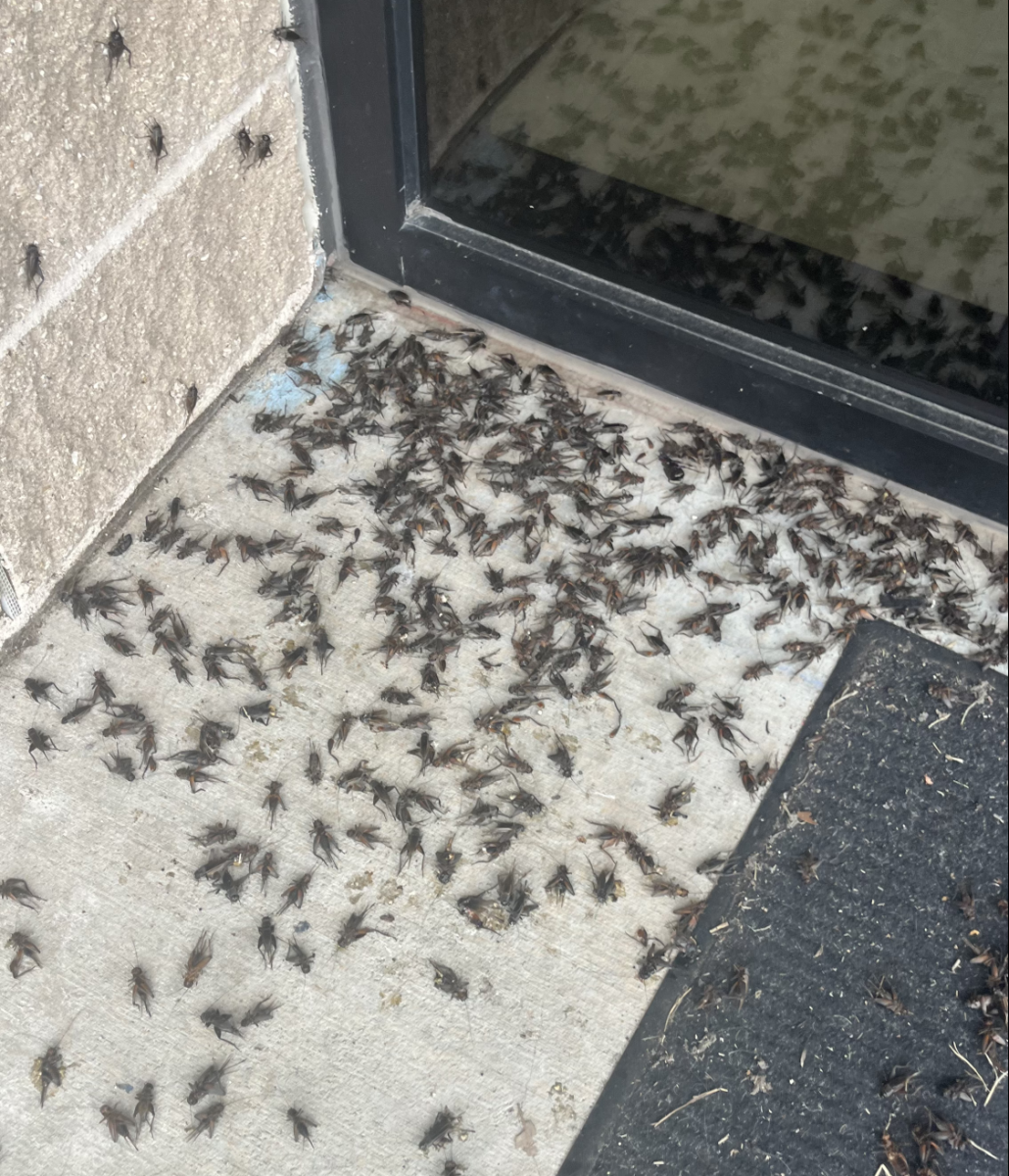Walking through the crowded hallways, students comment passionately about the annual black field cricket infestation that has taken Westwood by storm. Crickets are seemingly everywhere, from the chirps in classrooms, students’ bags, and even light fixtures. In an official statement from the Round Rock Independent School District (RRISD), the black field crickets are a yearly occurrence, something that the district wants to resolve quickly each year.
“Texas [has] cyclical cricket outbreaks and masses of black field crickets are a common sight in late summer and fall,” the statement said. “[The cricket outbreaks] are typically associated with a dry period followed by a fair amount of rain, in which there are less fungal diseases that destroy [cricket] eggs.”
Black field crickets have a mating season of one to two weeks, and are attracted to the night lights at Westwood. However, once they get inside the school, they have difficulty getting outside.
“[Crickets] don’t have that level of mobility or intelligence like a human to get out of the building,” Principal Erin Campbell said. “Once they get in, they can’t get out, which leads to the piles of dead crickets around the school.”
Once the cricket issue becomes known, the district’s Integrated Pest Management (IPM) arrives at affected schools to take appropriate action.
“Once the crickets arrive, our pest control department manages the population. They come out and they will spray for crickets,” Campbell said. “Once the crickets are dead, it becomes a custodial cleanup issue.”
For some students, the cricket issue is a cause for distress, especially those with fears of bugs or crickets, (entomophobia or orthopterophobia), and affects student comfort levels on campus.
“[Crickets] have affected my comfort at [football] games because I feel like I always have to be on the lookout,” Mina Stephens ‘26 said. “If one gets near me, I always ask one of my friends near me to help get rid of it.”
Moreover, the crickets can be distractions during instructional time. Their chirping and constant presence has made it difficult for students to concentrate.
“The chirping is annoying. I was taking a test when crickets started chirping, making it difficult to concentrate,” Diego Sardan ‘26 said. “It’s also unsettling to just see a bunch of dead crickets in the corner of a room, because they smell as well.”
According to many students, the crickets have affected outside activities, such as band, the most. The crickets are known for jumping onto the students during rehearsals and football games.
“Crickets follow me where I go, so during rehearsal, I’ll just have a cricket on me, or when we’re playing or marching I’ll have multiple crickets on me,” Mia Rhie ‘28 said. “During [football] games, they’ll dive bomb onto us.”
However, many officials admit that the cricket issue is not easily preventable. When asked about possible ways to prevent the issue from occurring in the future, Principal Campbell compared it to the inevitable nature of oak tree pollen in the Texas spring.
“If you were to say what could we do to prevent the pollen that’s coming in the spring, you can’t do anything about it, even though you know it’s coming,” Campbell said. “Just like the pollen, the crickets are going to be everywhere, but you can’t do anything but clean it up.”
While nearly unpreventable, the district’s top priority during the cricket mating season is to dispose of them as quickly as possible.
“We don’t want this issue to affect student learning and comfort levels,” Campbell said. “Westwood should be a safe and comfortable place for all students, and that’s one of our top priorities.”
This story was originally published on Westwood Horizon on September 23, 2024.




































